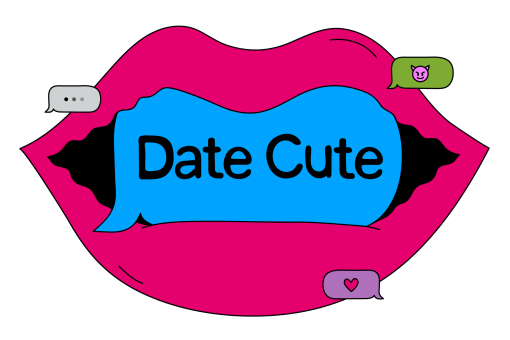Table of Contents
Alexis Fischer was excited to jump back into the dating world after being single for two years.
The professional dancer-turned-entrepreneur took time to heal from her breakup with her ex-boyfriend of nearly four years. She also wanted to focus on building her business, the Move by Lexfish app, where she teaches virtual Pilates, dance and other fitness classes. Then, in May, she was accepted on Raya, an exclusive, membership-based app that initially focused on dating but has expanded into a digital spot to build friendships and business relationships.
Fischer started messaging two men and eventually went on multiple dates with each of them. She kept in touch with them via text and FaceTime, and things were seemingly going well, until all of a sudden: crickets.
“I’ve been ghosted twice in the past month,” a teary-eyed Fischer said in a video on TikTok , where she has more than 28,000 followers.
In dating, ghosting is when someone ends all communication without giving the other person any warning or explanation. In the video, Fischer went on to talk about how the experience bruised her ego and left her feeling rejected. Dozens of people commented, saying that they had had similar experiences.
“It was just absurd to me,” said Fischer, 30, of the South Bay, told The Times. “You start to question yourself, like ‘Did I say something? Did I do something?’ And you read back all your texts and just kind of go crazy.”
It wasn’t as if she thought either of these men were “the love of her life,” she said, but she would have preferred for them to let her know that they didn’t want to date her anymore rather than disappearing and causing “emotional turmoil” for her.
“We need to all collectively be better,” she said in a follow-up TikTok video. “We don’t need to ghost. We are better than that. Send a clear text, a voice note, call them … Just be clear.”
With the rise of online dating and social media, ghosting has become a common experience for many people. A 2023 Forbes survey, which polled 5,000 U.S. residents who’d actively been on dates within the last five years, found that 60% of respondents said they had been ghosted before.
Meanwhile, 45% said they have ghosted another person. Findings also show that men and women are equally to blame: Forty-four percent of men and 47% of women said they’d ghosted someone before. (This study didn’t appear to be inclusive of all gender identities.)
Ebony Utley, a professor of communication studies at Cal State Long Beach, said ghosting has likely been around forever. However, because there are now so many ways to reach someone whether it’s via phone, email or lurking on their social media, ghosting has become more intentional.
“We don’t need to ghost. We are better than that. Send a clear text, a voice note, call them … Just be clear.”
— Alexis Fischer, in a recent TikTok video
L.A.-based marriage and family therapist Ali Cortes said the COVID-19 pandemic has played a role in people communicating less with others.
“It’s a trend that is acceptable,” Cortes said, adding that no one likes to be on the receiving end of it.
Many experts agree that ghosting is generally frowned upon with the exception being if you feel unsafe around someone or if any red flags such as lying or abusive behavior pops up.
Letting someone know that you’re no longer interested in them can feel nerve-wracking. (We all get it.) But getting ghosted feels way worse. Here’s what experts say you should do instead.
What actually happens when people ghost others?
There are several reasons why people ghost. Some do it because they’re afraid of confrontation. Others think they are sparing the other person’s feelings, while some simply don’t think they owe the other person an explanation.
“People lie for two reasons,” said Utley, author of the 2019 book “He Cheated, She Cheated, We Cheated: Women Speak About Infidelity.” “They lie to protect themselves, and they lie to protect other people. So ghosting lets people do both at the same time.”
A ghoster may think, “‘I protect myself from being a bad person,’” Utley said, “‘and I protect you from hating me by not explaining the real reason why I don’t want to know you anymore.’”
No matter which way you slice it, suddenly disappearing without letting the other person know can cause more harm than good. Although research hasn’t fully explained the psychological effects of ghosting, a 2020 study published by the International Journal of Environmental Research and Public Health related its effects to “ostracism,” which could cause feelings of “loneliness, depressed mood, frustration, anxiety and helplessness.”
“It is disrespectful,” said Cortes, who’s also the founder of Bienestar Counseling, Coaching and Consulting. “Because there’s no feedback, it leaves the person out in the cold.”
“[Ghosting] usually interferes with our self-esteem in some way. And if that happens to you recurringly in patterns, then you really start to think, ‘Oh, snap. It’s me. People just don’t want to be in communication with me.’”
— Ebony Utley, a professor of communication studies at Cal State Long Beach
Utley said that when people are ghosted, they often revert to their “little kid state” where they think that everything is their fault. Questions including “Is it something that I did? Did I make them mad? Was I not good enough?” might circle their minds.
“It usually interferes with our self-esteem in some way,” she said. “And if that happens to you recurringly in patterns, then you really start to think, ‘Oh, snap. It’s me. People just don’t want to be in communication with me.’ And it might just be you’ve run into a bunch of a—holes.”
But if the person doing the ghosting were candid, then you’d know whether the issue is you (for example, they said you came on too strong), and as a result, you could decide whether you want to work on those personality traits.
What should you do instead?
Ghosting is easy — that’s why people do it. But if you’re willing to do the alternative, here are a couple options for what you could say.
If you’ve lost interest in the person you are dating and no longer want to communicate with them, Cortes recommends using the sandwich method, in which you deliver negative or constructive feedback between two slices of positive comments.
You can start by thanking the person for sharing their time with you and let them know that you’ve enjoyed getting to know them, Cortes said. Then insert your reason. Some examples are “I’ve realized that I’m not ready for a relationship right now,” “Our values don’t align” or “We don’t want the same thing.” Wrap up by saying something such as this: “I want to respectfully let you know so that you can move on, and I can move on as well,” and then tell them to take care.
Another option, says Mike Chang, a marriage and family therapist based in Glendale, is “making it more about you” and less about the other person. It’s fine to keep your explanation for ending the relationship brief.
“I think people have preferences when it comes to what kind of person they want to be in a relationship with, which is totally fine,” Chang said. “But nobody wants to be told that they don’t have something or a trait that [you’re] looking for.” A key reminder: If your comment isn’t constructive, keep it to yourself.
Let’s be friends
It may be tempting to end this tough conversation by saying “We can be friends” as a way to cushion the blow. But experts warn that you shouldn’t say this or agree to it unless that’s what you actually want. Doing so can sometimes make the other person think they still have a chance with you romantically. It can also leave the door open for them to cross your boundaries.
Instead, Utley recommends saying something like this: “I’ve enjoyed getting to know you, but I don’t want us to be in communication anymore.”
“Yes, it is a very difficult thing to say,” Utley said. “And, yes, it’s a very difficult thing to hear. But if you don’t want to be in communication anymore, you’re going to get that. That person is not going to keep reaching out to you, and if they do, you might have to get the police involved. But at least you’ve been clear.”
Should you have this conversation in person?
When asked whether you should have this conversation in person, via text or over the phone, Utley advised picking whichever one makes you feel most comfortable.
Any of these options is “better than nothing,” she said, “because sometimes those in-person conversations end up being conversations when you really just want to end a relationship.”
If you think an in-person conversation might go sideways or put you in a dangerous situation, then a phone call or text might be best, Utley said.
“If I do this one hard thing of rejecting [someone], I’m actually helping both of us have a healthier dynamic with other people.”
— Ali Cortes, a L.A.-based marriage and family therapist
Ultimately, no matter what’s said, there’s still a chance that the conversation may not be well received.
“I think how the other person responds is a variable that we can’t control,” said Chang, who’s also the program director for Lighthouse Counseling Solutions. They might be mature about it or they might have a complete meltdown. However, it’s not your responsibility to make the other person “feel better about the breakup because they are going to interpret it however they want to interpret it,” he said.
Your only job — and the only thing you can control — is being transparent, clear and respectful about your desire to end communication.
The long-term benefit
There could be another positive outcome from having this conversation. Utley said learning how to communicate effectively can help you become a better friend, parent, sibling, neighbor, employer, colleague and employee. “This kind of practice is going to help you if you ever have to deliver bad news to anyone, anywhere, at any time,” she said. “Practicing these things now will help you do that and make all those forthcoming situations in your life a little bit easier.”
Cortes likes to think of this skill as an act of kindness toward yourself and the other person.
“If I do this one hard thing of rejecting [someone], I’m actually helping both of us have a healthier dynamic with other people,” she said. By saying no to this person, you are ultimately saying yes to yourself and freeing the other person to do the same.
A new dating standard
A few months after Fischer’s back-to-back ghosting experiences, she started messaging another guy she had met on Instagram. They FaceTimed several times, but she eventually realized that they were on different paths in their lives and ultimately weren’t compatible. So she decided to break it off with him.
He responded with “a nice, long message,” she said, acknowledging that he couldn’t give her what she was looking for at the time and that he respected her decision. Then they went their separate ways.
“I was a little sick to my stomach about it, and then once we had the conversation, I was like, ‘Oh, my gosh. I feel so light. I feel clear,’” she said. “Let’s have that conversation always.”
The experience has given Fischer a new perspective and confidence about dating. It’s also taught her that being ghosted is “not a reflection of me at all because I know I’m a catch,” she said. “I know what I have to offer.”



